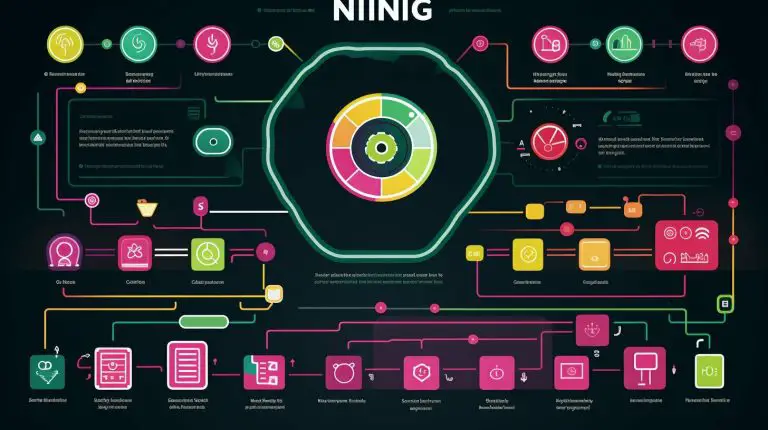Exploring CentOS Alternative: A Deep Dive into New Options
Red Hat discontinued investment in CentOS in December 2020, leaving CentOS users without a stable point distribution. However, there are several excellent options for CentOS replacements. This article delves into the top alternatives to help users make an informed decision. The alternatives can be divided into two main groups: RHEL-based distributions, which offer compatibility with Red Hat, and other Linux distributions with a proven track record in the server market.
Key Takeaways
- CentOS users need to explore alternative options due to Red Hat’s discontinuation.
- RHEL-based distributions provide compatibility with Red Hat.
- Other Linux distributions offer proven reliability in the server market.
- Consider factors like compatibility, stability, and community support when choosing an alternative.
- CentOS Stream remains a part of Red Hat’s development process, but it is not an enterprise-ready option.
RHEL-based CentOS Alternatives
CentOS users seeking alternatives to the discontinued distribution can explore several RHEL-based Linux options that offer 1:1 binary compatibility with Red Hat. These alternatives make it easier for users to migrate their applications and services without major compatibility issues.
Some of the top RHEL-based CentOS alternatives include:
- AlmaLinux: A community-driven CentOS fork led by the CloudLinux team, ensuring long-term support and maintaining compatibility with RHEL.
- Rocky Linux: Another community-driven project created by the original co-founder of CentOS, promising a seamless transition from CentOS with ongoing RHEL compatibility.
- Oracle Linux: A distribution built upon RHEL and designed for enterprise workloads, offering free and paid support options.
- VzLinux: A CentOS replacement developed by Virtuozzo, focusing on stability, security, and performance for hosting and virtualization environments.
These RHEL-based alternatives provide CentOS users with a familiar environment and a smooth transition path, ensuring continuity and compatibility for their existing setups.
Comparing the Best RHEL-based Alternatives
To help users further evaluate their options, the following table provides a comparison of key features and highlights of the top RHEL-based CentOS alternatives:
| Distribution | Compatibility with RHEL | Community Support | Stability |
|---|---|---|---|
| AlmaLinux | Yes | Active and growing | High |
| Rocky Linux | Yes | Large and diverse | High |
| Oracle Linux | Yes | Oracle support options | High |
| VzLinux | Yes | Commercial support available | High |
While all these distributions offer binary Compatibility with RHEL, users should consider factors such as community support, stability, and available support options when selecting the best CentOS alternative for their specific needs.
Linux Distributions without RHEL Compatibility
Apart from RHEL-based distributions, there are other Linux distributions that have proven reliability in the server market but do not provide backward compatibility with RHEL. While migrating from CentOS to these distributions may require specific skills and knowledge, they are still viable alternatives. Some of the options in this category include:
Debian
Debian is a popular choice among server administrators due to its rock-solid stability and extensive package repository. It is known for its commitment to free and open-source software, attracting a strong community of developers. Debian’s release cycle emphasizes security and reliability, making it a suitable alternative for CentOS users who prioritize stability.
Ubuntu

Ubuntu is one of the most widely used Linux distributions, known for its user-friendly interface and focus on usability. It offers regular software updates and a vast selection of packages, making it suitable for both server and desktop environments. While Ubuntu may not offer direct compatibility with RHEL, it has a strong community and extensive documentation that can assist with the migration process.
These Linux distributions provide CentOS users with alternatives that offer different features and priorities. While they may require some adjustment and familiarity with their respective ecosystems, Debian and Ubuntu can serve as viable replacements for those seeking stability, reliability, and usability in their server environments.
CentOS vs Ubuntu: A Comparison
When it comes to choosing between CentOS and Ubuntu, both Linux distributions have their own strengths and weaknesses. CentOS has long been known for its stability and compatibility, making it a popular choice among enterprise users. On the other hand, Ubuntu focuses on usability and supporting the latest software innovations, making it a favorite among desktop users.
CentOS is built on the stable foundation of Red Hat Enterprise Linux (RHEL) and offers long-term support, making it a reliable option for server environments. It prioritizes stability and security over the latest features and updates, making it the go-to choice for organizations looking for a robust and dependable operating system. However, this stability can come at the cost of sometimes outdated software packages and slower release cycles.
Ubuntu, on the other hand, is known for its user-friendly interface and ease of use. It emphasizes the latest software releases and cutting-edge technologies, making it a great choice for developers and users who want access to the newest features. Ubuntu also benefits from a large and active community, ensuring frequent updates and ample community support. However, its rapid release cycle may introduce more bugs and stability issues compared to CentOS.
In summary, choosing between CentOS and Ubuntu depends on individual preferences and requirements. If stability, compatibility, and long-term support are paramount, CentOS is a solid choice. However, if usability, the latest features, and a vibrant community are more important, Ubuntu may be the better option. Ultimately, the decision comes down to the specific needs of the user and the intended use case.
Choosing the Right CentOS Alternative
When considering a CentOS alternative, there are several important factors to take into account. These factors will help you make an informed decision that aligns with your specific needs and requirements. Here are some key considerations:
- Compatibility: Ensure that the alternative you choose is compatible with your existing applications and services. This will minimize the effort and resources required for migration.
- Stability: Look for a distribution that offers stability and reliability, as this is crucial for server environments. A stable operating system will ensure smooth operations and minimize downtime.
- Community Support: Evaluate the size and activity of the community behind the alternative you are considering. A strong community can provide valuable support, resources, and updates for the distribution.
Additionally, you may want to consider factors such as ease of migration, security features, and long-term support options. By carefully evaluating these factors, you can choose a CentOS alternative that best meets your specific requirements.
Remember, each alternative has its own unique strengths and weaknesses, so it’s important to prioritize your needs and make an informed decision. Now, let’s take a closer look at some of the top CentOS alternatives in the next sections.

RHEL-based CentOS Alternatives
There are several RHEL-based alternatives to CentOS that offer a 1:1 binary compatibility with Red Hat. These alternatives provide an easy migration path for CentOS users, allowing them to transfer their apps and services seamlessly. Some of the top RHEL-based CentOS alternatives include:
| Distribution | Compatibility | Stability | Community Support |
|---|---|---|---|
| AlmaLinux | ✓ | ✓ | ✓ |
| Rocky Linux | ✓ | ✓ | ✓ |
| Oracle Linux | ✓ | ✓ | ✓ |
| VzLinux | ✓ | ✓ | ✓ |
These distributions offer a seamless transition from CentOS to a Red Hat-compatible environment, ensuring compatibility, stability, and community support.
Linux Distributions without RHEL Compatibility
Alternatively, there are other Linux distributions that do not offer direct compatibility with Red Hat but have proven reliability in the server market. While migration to these distributions may require additional effort, they are viable alternatives to CentOS. Some popular options in this category include:
- Debian
- Ubuntu
These distributions provide different features and focus on usability. Consider your specific requirements and evaluate the pros and cons of each distribution before making a decision.
The Future of CentOS
The discontinuation of CentOS as a stable point distribution by Red Hat has raised questions about the future of this popular Linux distribution. While CentOS as we know it is no longer being actively developed, the CentOS community continues to contribute to CentOS Stream, which remains an important part of the Red Hat Enterprise Linux development process.
CentOS Stream is a rolling release that provides users with continuous updates, allowing them to stay ahead with the latest features and enhancements. However, it is important to note that CentOS Stream is not an enterprise-ready operating system and may not be suitable for users requiring long-term support or stability.
The CentOS community plays a vital role in the development and support of CentOS Stream. With its active participation, the community ensures that CentOS Stream remains a reliable and relevant option for users who prefer a rolling release model. The community provides valuable feedback, bug fixes, and contributions to the ongoing development of CentOS Stream.
| CentOS Version | Support Status |
|---|---|
| CentOS 7 | Active maintenance until June 2024 |
| CentOS 8 | Maintenance and updates until December 2021 |
| CentOS Stream | Continuous updates and community-driven support |
As the CentOS community continues to evolve and adapt to the changes introduced by Red Hat, users looking for a long-term stable distribution may need to explore alternative options. The choice of a CentOS alternative will depend on individual requirements and preferences, with factors such as compatibility, stability, and community support playing crucial roles in the decision-making process.
While the future of CentOS itself may be uncertain, the open-source nature of Linux ensures that there will always be viable alternatives available. Whether it’s RHEL-based distributions providing compatibility with Red Hat or other Linux distributions with a proven track record in the server market, users have a wide range of options to choose from. Ultimately, it is important for users to evaluate their specific needs and priorities, considering factors such as compatibility, stability, community support, and ease of migration when selecting a CentOS alternative.
Conclusion
In conclusion, the discontinuation of CentOS has paved the way for a variety of alternatives that cater to different user needs and preferences. RHEL-based alternatives like AlmaLinux, Rocky Linux, Oracle Linux, and VzLinux offer a seamless transition for CentOS users with their 1:1 binary compatibility with Red Hat. These distributions provide stability and compatibility, making them suitable choices for enterprise and server environments.
On the other hand, there are other Linux distributions like Debian and Ubuntu that have proven reliability in the server market but do not offer backward compatibility with RHEL. These alternatives prioritize usability and the latest software innovations, making them ideal for users seeking flexibility and a user-friendly experience.
When choosing the right CentOS alternative, it is crucial to consider factors such as compatibility with existing applications and services, stability, community support, and ease of migration. Each alternative has its strengths and weaknesses, so users should evaluate their specific needs and priorities to make an informed decision.
| CENTOS ALTERNATIVE | COMPATIBILITY | STABILITY | COMMUNITY SUPPORT | EASE OF MIGRATION |
|---|---|---|---|---|
| AlmaLinux | 1:1 binary compatibility with RHEL | High | Active community support | Smooth migration process |
| Rocky Linux | 1:1 binary compatibility with RHEL | High | Active community support | Smooth migration process |
| Oracle Linux | 1:1 binary compatibility with RHEL | High | Enterprise-level support | Smooth migration process |
| VzLinux | 1:1 binary compatibility with RHEL | High | Active community support | Smooth migration process |
| Debian | No RHEL compatibility | High | Large and knowledgeable community | Requires specific skills and knowledge for migration |
| Ubuntu | No RHEL compatibility | High | Large and active community | Requires specific skills and knowledge for migration |
It is evident that there are viable options available for CentOS users seeking alternatives. Whether you prioritize compatibility and stability or flexibility and usability, there is a CentOS alternative that can meet your requirements. Make an informed choice based on your needs and preferences, taking into account factors such as compatibility, stability, community support, and ease of migration.
Explore the CentOS Alternative Landscape
As the Linux ecosystem continues to evolve, it’s essential to stay informed about the latest CentOS alternatives. Whether you choose a RHEL-based distribution or one without RHEL compatibility, there are numerous options to explore. Keep an eye on the developments in the CentOS community and the Linux distribution market to ensure you are making the best choice for your specific use case and requirements.
What are your thoughts?
As a journalist covering the CentOS alternative landscape, I’m curious to hear your opinions and experiences. The CentOS vs Ubuntu debate has been a hot topic among users, and I’d love to know where you stand.
Have you explored any CentOS alternatives? Maybe you’ve migrated to one of the RHEL-based distributions like AlmaLinux, Rocky Linux, Oracle Linux, or VzLinux, which offer compatibility and stability. Or perhaps you’ve opted for a different Linux distribution like Debian or Ubuntu, with their focus on usability and the latest software innovations.
Share your insights in the comments section below. Your feedback is invaluable and can provide valuable perspectives to others navigating the CentOS alternative landscape. Remember, the choice between CentOS and its alternatives is subjective, and hearing from the community helps us understand the various factors that influence decision-making.
FAQ
What are the alternatives to CentOS?
Some of the top alternatives to CentOS include AlmaLinux, Rocky Linux, Oracle Linux, Debian, and Ubuntu.
What are RHEL-based CentOS alternatives?
RHEL-based CentOS alternatives include AlmaLinux, Rocky Linux, Oracle Linux, and VzLinux.
Which Linux distributions do not have RHEL compatibility?
Linux distributions like Debian and Ubuntu do not provide backward compatibility with RHEL.
What are the key factors to consider when choosing a CentOS alternative?
Compatibility with existing applications and services, stability, community support, and ease of migration are some of the key factors to consider.
What is the difference between CentOS and Ubuntu?
CentOS prioritizes stability and compatibility, while Ubuntu focuses on usability and supporting the latest software innovations.
What is the future of CentOS?
CentOS as we know it is no longer being actively developed, but the CentOS community will continue to contribute to CentOS Stream, which is a rolling release and not an enterprise-ready operating system.
What are users’ thoughts on the CentOS vs Ubuntu debate?
Share your opinions and experiences in the comments section. The choice between CentOS and its alternatives is a subjective one, and it’s always interesting to hear different perspectives and insights from the community.
- About the Author
- Latest Posts
Mark is a senior content editor at Text-Center.com and has more than 20 years of experience with linux and windows operating systems. He also writes for Biteno.com






